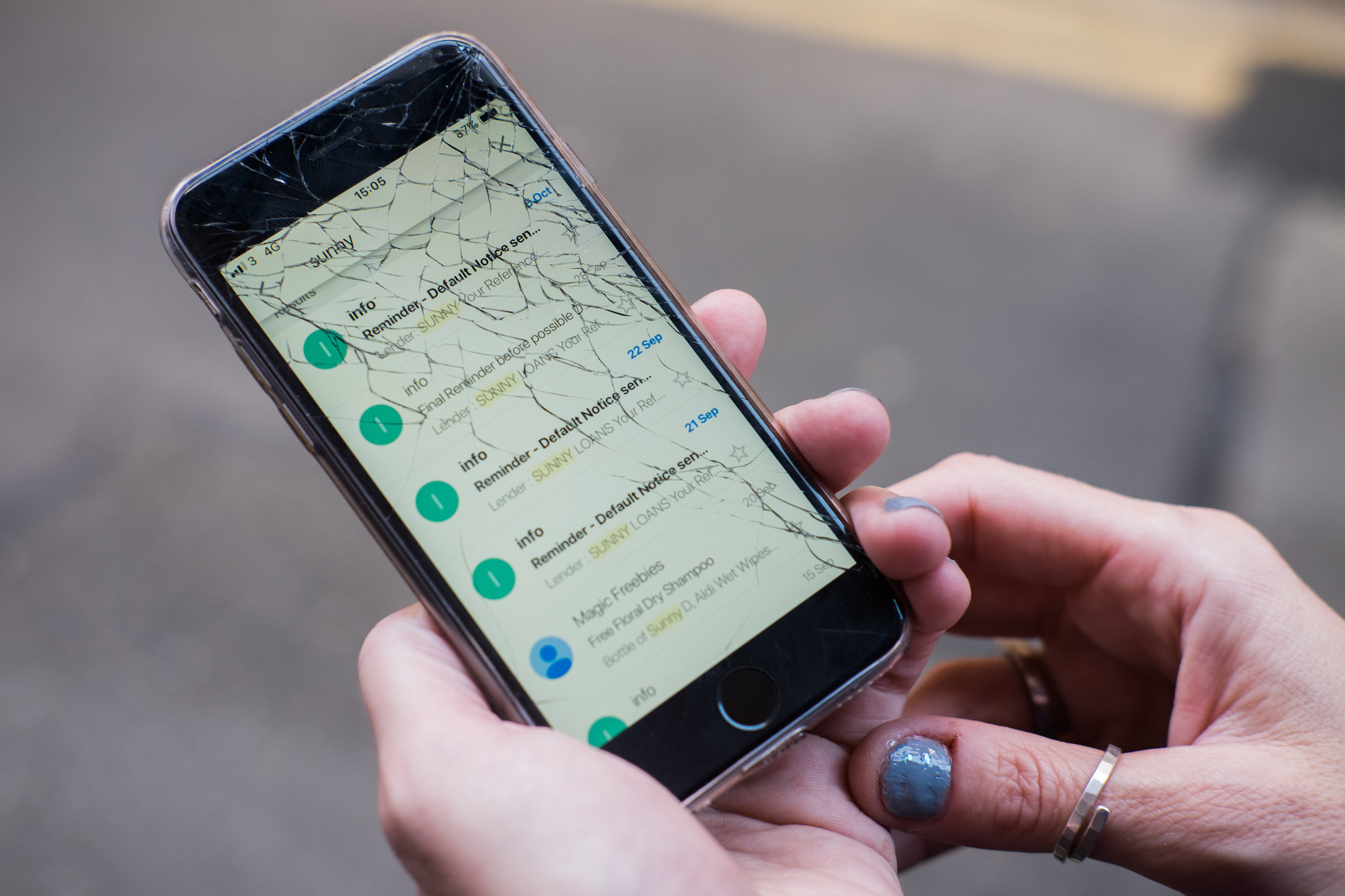
Jill was working two jobs to make ends meet when her daughter got sick.
As a single parent, Jill wanted to make sure that her daughter didn’t miss out. But it meant taking an extra job in the evenings to get by.
But when Jill’s daughter got seriously ill, it meant accompanying her on twice-daily appointments at a hospital ten-miles from home. Work were understanding. But they couldn’t pay her unless she put in the hours. Her expenses went up, but her income shrunk dramatically.
So Jill took out her first payday loan to pay the bills.
“Each time, I would start with about £500. I knew what I was doing. I knew the interest rate was ridiculous. But no one else would lend me money. Then I’d get another loan to pay the first company off.”
“It was ridiculous. It’s scary, it is really scary.”

Jill doesn’t really know exactly how much she has taken out in loans, but she knows the amount she has had to pay back so far is around £10,000.
Jill would borrow £400 or £500, but with interest and late-payment fees it would soon be £2,000.
As soon as one was paid off she would get another, often using part of the new loan to pay off other loans. It was the only way to get by.
“I really should not qualify for this sort of loan.”
But this is what unaffordable lending looks like. It’s shocking. But it’s certainly not unusual.
“if I missed payments the lenders were a bit too understanding. They’d say ‘oh, you’re missing payments, let see what we can do’ and then extend the loan. That’s great to have breathing space when you don’t know if you have enough in your purse for petrol tomorrow. When they say here’s some more, you say yes please.”
Jill was caught up in a merry-go-round of loans. At one time, she had five payday loans with two different companies. When they started to turn her down, she simply moved on to the next company. She just needed money. The consequences could wait, just so long as payday lenders were willing to keep her bank account just about topped up.
“I was on a good salary at the beginning. But they never checked on future loans. They never asked, so I wasn’t going to go back and say I was only working 15 hours.”
Jill’s daughter’s illness was taking its toll on her own physical and mental health. Her weight was down to just six stones in and she was drinking heavily.
Stress about her debts only added to this.
“It sounds horrible, but you being rock bottom is what the payday loan companies want.”

Jill’s friend finally helped her sort out some of her money issues, sitting down with her and shaving money off bills, such as energy and insurance.
She knew that was something that she could have done, but found it hard to motivate herself, as it all seemed so useless. Jill currently has around £5,000 of payday loan debt, most of which is now in the hands of debt collectors.
“Getting a loan was too easy. I didn’t speak to a person at all. The money was in my account in an hour. You get to your bank and there is no money and you wonder how you are going to get bus fare into town. So you go to the library and apply on their computer and an hour later you feel brilliant. I felt stupid taking out these loans, because I know exactly what these companies are about. But I didn’t see any alternative. My bank had said no.”
Jill now has a Debt Management Plan, which Citizens Advice helped her set up.
She is currently in the process of making complaints against several payday loan companies.
